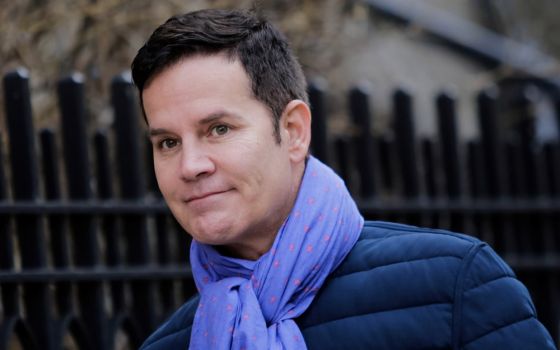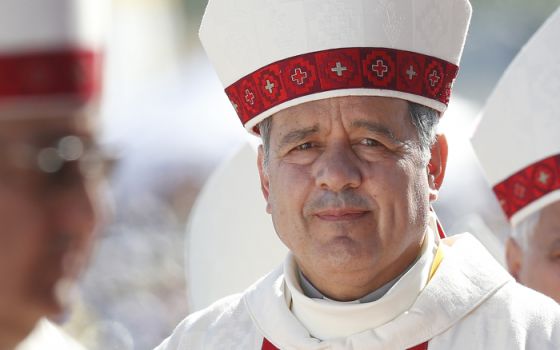Pope Francis has accepted the resignation of two more Chilean Catholic bishops, bringing to five the number of prelates he has replaced so far as part of the continuing fallout from the country's clergy sexual abuse crisis.
In a brief note June 28, the Vatican announced that Francis had effectively removed both Talca Bishop Horacio Valenzuela Abarca and Rancagua Bishop Alejandro Goić Karmelić.
At age 78, Goić was well past the traditional retirement age of 75. But Valenzuela, at age 64, had an expected 11 years of service left to the church.
The pontiff appointed two auxiliary bishops of Chile's capital of Santiago to serve as apostolic administrators pending appointments of new leaders for both dioceses: Bishop Galo Fernández Villaseca for Talca, and Bishop Luis Ramos Pérez for Rancagua.
The resignations are the latest part of a nearly seven-month saga that begin when Francis visited Chile in January, where his defense of a prelate accused by abuse survivors of witnessing the crimes of notorious abuser Fr. Fernando Karadima led to the worst received visit of his papacy.
The pontiff removed that prelate, Osorno Bishop Juan Barros Madrid, and two other bishops past retirement age about three weeks ago.
Francis made a sharp turnabout after visiting Chile. He sent one of the church's most respected abuse investigators to the country to look into abuse allegations and then admitted he had made "serious mistakes" in his handling of sexual abuse cases.
Later, the pontiff sent an open letter to the people of Chile and publicly decried "a culture of abuse and cover-up" in the country's Catholic Church. He also held an en masse meeting with the country’s bishops in Rome, after which nearly all of the prelates offered him their resignations.
Valenzuela, who was appointed to Talca in 1996 after serving as a Santiago auxiliary, had been known alongside Barros as one of four bishops in the country with ties to Karadima. Abuse survivors have testified that, like Barros, Valenzuela had witnessed Karadima’s crimes as a priest in the 1980s and 90s.
Goić, who has served as the head of the Chilean Church's National Commission for the Prevention of Abuses, was recently forced to suspend 14 priests of his diocese from ministry after a TV news program ran a report on allegations made against each of them.
Juan Carlos Cruz, a Chilean abuse survivor, said on Twitter after the June 28 announcement that Francis was making "slow but sure" progress in rooting out the abuse scandal in his country.
"Two fewer bad and corrupt bishops leading good people," said Cruz, who met Francis at the Vatican eight weeks ago as part of a series of separate meetings between the pope and two groups of Chilean survivors in as many months.
It appears likely that Francis will accept more resignations of Chilean bishops in coming weeks. One factor that may be limiting the speed of his actions is the availability of qualified priests or bishops to serve as administrators of dioceses after bishops' resignations of accepted.
After the June 28 announcement, four of Santiago's six auxiliary bishops are now serving as administrators of other dioceses.
[Joshua J. McElwee is NCR Vatican correspondent. His email address is jmcelwee@ncronline.org. Follow him on Twitter: @joshjmac.]
Advertisement






